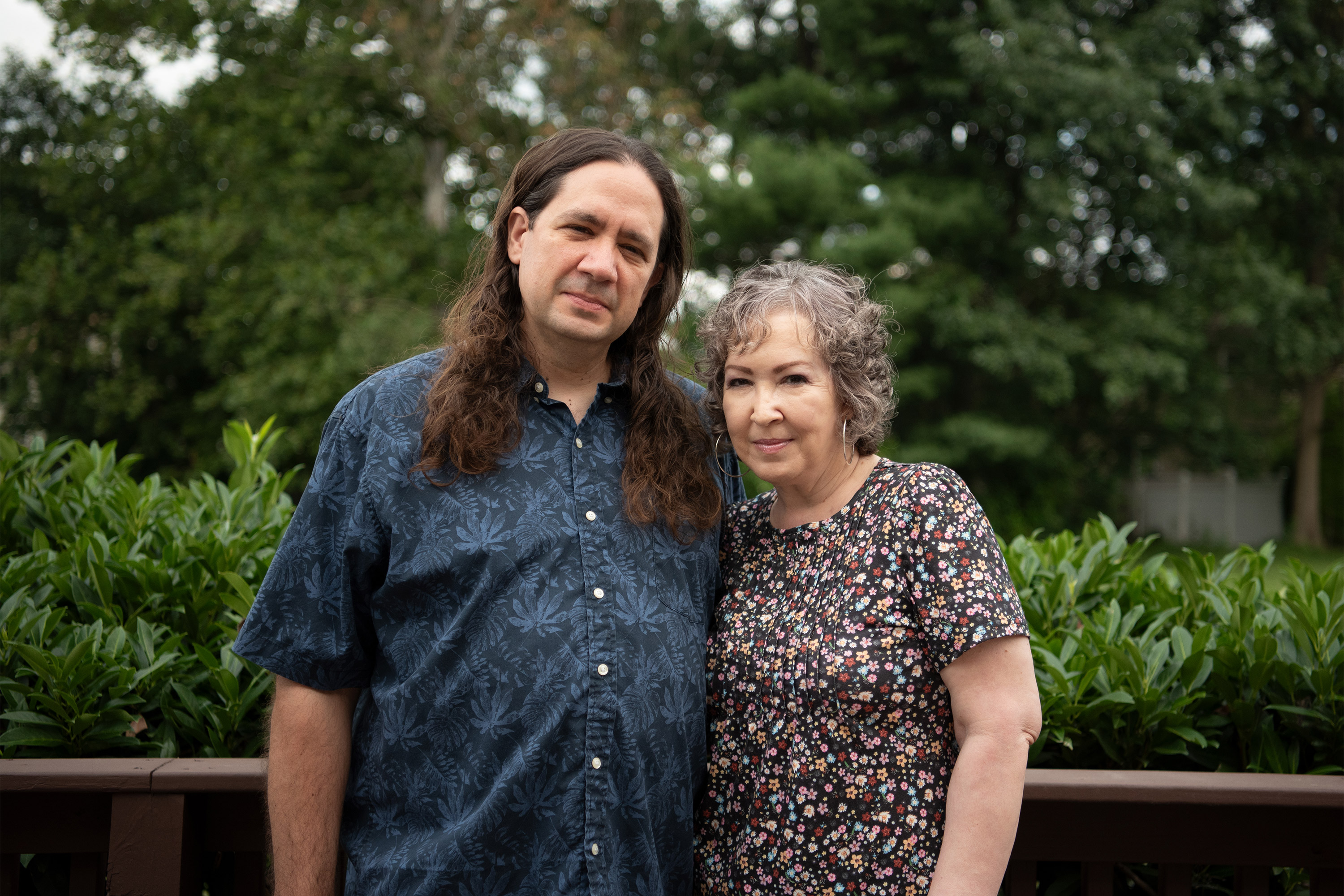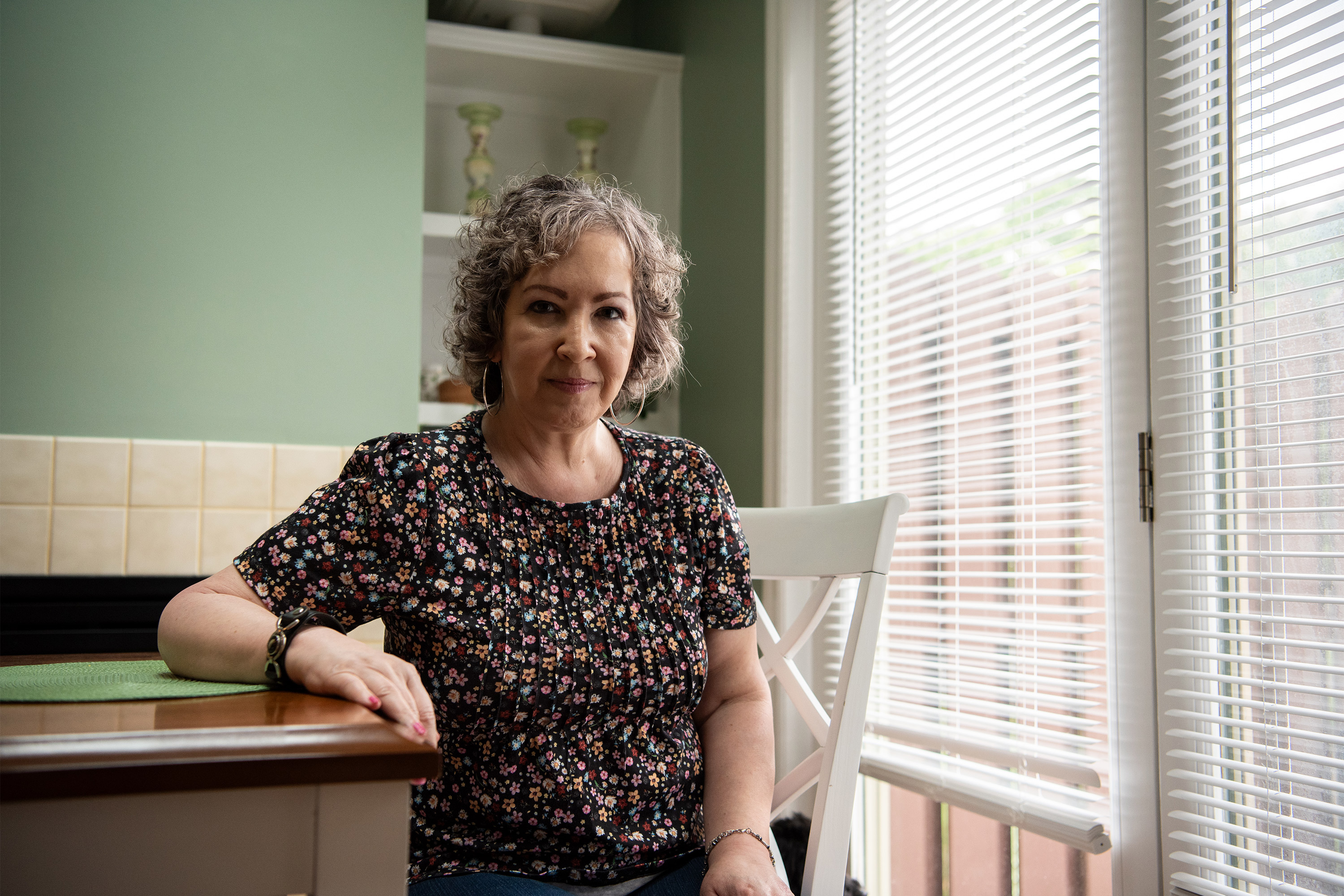Within the 18 months after Francine Milano was identified with a recurrence of the ovarian most cancers she thought she’d overwhelmed 20 years in the past, she traveled twice from her dwelling in Pennsylvania to Vermont. She went to not ski, hike, or leaf-peep, however to rearrange to die.
“I really wanted to take control over how I left this world,” stated the 61-year-old who lives in Lancaster. “I decided that this was an option for me.”
Dying with medical help wasn’t an choice when Milano realized in early 2023 that her illness was incurable. At that time, she would have needed to journey to Switzerland — or reside within the District of Columbia or one of many 10 states the place medical assist in dying was authorized.
However Vermont lifted its residency requirement in Could 2023, adopted by Oregon two months later. (Montana successfully permits assist in dying by way of a 2009 courtroom choice, however that ruling doesn’t spell out guidelines round residency. And although New York and California lately thought of laws that may enable out-of-staters to safe assist in dying, neither provision handed.)
Regardless of the restricted choices and the challenges — reminiscent of discovering medical doctors in a brand new state, determining the place to die, and touring when too sick to stroll to the following room, not to mention climb right into a automotive — dozens have made the trek to the 2 states which have opened their doorways to terminally ailing nonresidents looking for assist in dying.
Not less than 26 individuals have traveled to Vermont to die, representing practically 25% of the reported assisted deaths within the state from Could 2023 by way of this June, in response to the Vermont Division of Well being. In Oregon, 23 out-of-state residents died utilizing medical help in 2023, simply over 6% of the state whole, in response to the Oregon Well being Authority.
Oncologist Charles Blanke, whose clinic in Portland is dedicated to end-of-life care, stated he thinks that Oregon’s whole is probably going an undercount and he expects the numbers to develop. Over the previous 12 months, he stated, he’s seen two to 4 out-of-state sufferers every week — about one-quarter of his apply — and fielded calls from throughout the U.S., together with New York, the Carolinas, Florida, and “tons from Texas.” However simply because sufferers are prepared to journey doesn’t imply it’s simple or that they get their desired consequence.
“The law is pretty strict about what has to be done,” Blanke stated.
As in different states that enable what some name physician-assisted dying or assisted suicide, Oregon and Vermont require sufferers to be assessed by two medical doctors. Sufferers will need to have lower than six months to reside, be mentally and cognitively sound, and be bodily in a position to ingest the medication to finish their lives. Charts and information should be reviewed within the state; neglecting to take action constitutes practising drugs out of state, which violates medical licensing necessities. For a similar motive, the sufferers should be within the state for the preliminary examination, once they request the medication, and once they ingest them.
State legislatures impose these restrictions as safeguards — to stability the rights of sufferers looking for assist in dying with a legislative crucial to not cross legal guidelines which are dangerous to anybody, stated Peg Sandeen, CEO of the group Loss of life With Dignity. Like many aid-in-dying advocates, nevertheless, she stated such guidelines create undue burdens for people who find themselves already struggling.
Diana Barnard, a Vermont palliative care doctor, stated some sufferers can not even come for his or her appointments. “They end up being sick or not feeling like traveling, so there’s rescheduling involved,” she stated. “It’s asking people to use a significant part of their energy to come here when they really deserve to have the option closer to home.”
These opposed to assist in dying embrace non secular teams that say taking a life is immoral, and medical practitioners who argue their job is to make individuals extra snug on the finish of life, to not finish the life itself.
Anthropologist Anita Hannig, who interviewed dozens of terminally ailing sufferers whereas researching her 2022 ebook, “The Day I Die: The Untold Story of Assisted Dying in America,” stated she doesn’t anticipate federal laws to settle the problem anytime quickly. Because the Supreme Court docket did with abortion in 2022, it dominated assisted dying to be a states’ rights problem in 1997.
In the course of the 2023-24 legislative periods, 19 states (together with Milano’s dwelling state of Pennsylvania) thought of aid-in-dying laws, in response to the advocacy group Compassion & Decisions. Delaware was the only state to cross it, however the governor has but to behave on it.

Sandeen stated that many states initially cross restrictive legal guidelines — requiring 21-day wait occasions and psychiatric evaluations, as an illustration — solely to ultimately repeal provisions that show unduly onerous. That makes her optimistic that extra states will ultimately comply with Vermont and Oregon, she stated.
Milano would have most well-liked to journey to neighboring New Jersey, the place assist in dying has been authorized since 2019, however its residency requirement made {that a} nonstarter. And although Oregon has extra suppliers than the largely rural state of Vermont, Milano opted for the nine-hour automotive journey to Burlington as a result of it was much less bodily and financially draining than a cross-country journey.
The logistics have been key as a result of Milano knew she’d should return. When she traveled to Vermont in Could 2023 together with her husband and her brother, she wasn’t close to dying. She figured that the following time she was in Vermont, it might be to request the medicine. Then she’d have to attend 15 days to obtain it.
The ready interval is commonplace to make sure that an individual has what Barnard calls “thoughtful time to contemplate the decision,” though she stated most have executed that lengthy earlier than. Some states have shortened the interval or, like Oregon, have a waiver choice.
That ready interval may be arduous on sufferers, on high of being away from their well being care workforce, dwelling, and household. Blanke stated he has seen as many as 25 family attend the dying of an Oregon resident, however out-of-staters normally deliver just one individual. And whereas discovering a spot to die could be a drawback for Oregonians who’re in care properties or hospitals that prohibit assist in dying, it’s particularly difficult for nonresidents.
When Oregon lifted its residency requirement, Blanke marketed on Craigslist and used the outcomes to compile an inventory of short-term lodging, together with Airbnbs, prepared to permit sufferers to die there. Nonprofits in states with aid-in-dying legal guidelines additionally keep such lists, Sandeen stated.
Milano hasn’t gotten to the purpose the place she must discover a place to take the meds and finish her life. Actually, as a result of she had a comparatively wholesome 12 months after her first journey to Vermont, she let her six-month approval interval lapse.
In June, although, she headed again to open one other six-month window. This time, she went with a girlfriend who has a camper van. They drove six hours to cross the state border, stopping at a playground and reward store earlier than sitting in a parking zone the place Milano had a Zoom appointment together with her medical doctors somewhat than driving three extra hours to Burlington to satisfy in individual.
“I don’t know if they do GPS tracking or IP address kind of stuff, but I would have been afraid not to be honest,” she stated.
That’s not all that scares her. She worries she’ll be too sick to return to Vermont when she is able to die. And, even when she will be able to get there, she wonders whether or not she’ll have the braveness to take the medicine. About one-third of individuals accepted for assisted dying don’t comply with by way of, Blanke stated. For them, it’s usually sufficient to know they’ve the meds — the management — to finish their lives when they need.
Milano stated she is grateful she has that energy now whereas she’s nonetheless wholesome sufficient to journey and revel in life. “I just wish more people had the option,” she stated.





